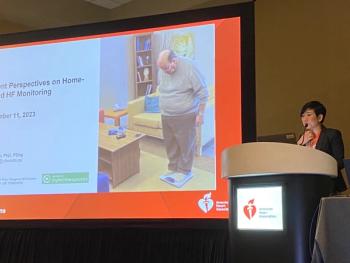
Drones in Healthcare Delivery Show Promise, Environmental Factors Play Key Role, Study Finds
In recent years, the use of drone technologies and healthcare delivery has become a hot topic in scholarly discussions as they have attributed to address challenges associated with poor road conditions, transportation limitations and the need for more efficient responses to healthcare emergencies.
The use of drone technology to deliver healthcare goods and supplies is favored among users, especially when the impact of particular environmental factors are reduced, according to a recent study featured in the online
In recent years, the use of drone technologies and healthcare delivery has become a hot topic in scholarly discussions as they have attributed to address challenges associated with poor road conditions, transportation limitations and the need for more efficient responses to healthcare emergencies.
According to the study, the use of drones, exemplified by Zipline, the leading medical drone technology company, in Ghana, highlights their ability to enhance emergency health delivery, which contributes to life-saving outcomes.
For example, Zipline's response to the COVID-19 pandemic included the use of drones that transported health supplies to facilities and collect suspected COVID-19 patient blood samples from remote areas in Ghana.
While countries like Ghana and Rwanda have demonstrated successful drone technology use in healthcare, the same cannot be said for developed countries, where challenges continue in implementing widespread drone use for healthcare purposes.
Though drone technologies have a positive impact toward healthcare, gaps still exist in understanding factors influencing their adoption and usage.
Researchers of the study investigated the environmental factors influencing drone adoption to further promote their use, in turn, improving overall health delivery performance and health among those in need.
Data was collected from health facilities utilizing Zipline's drone services, focusing on staff responsible for handling drugs and health commodities delivered through drones.
Of the 330 questionnaires that were distributed to these participants to develop a comprehensive understanding of the research questions, 312 questionnaires (a 94.55% response rate) were retrieved for analysis.
The questionnaire aimed to find if certain ideas about how technology is used, how satisfied people are with it, and how it keeps being used over time are correct.
The results revealed a positive relationship between technology adoption and user satisfaction, as well as a positive association between confirmation of expectations and user satisfaction. In addition, user satisfaction positively influenced actual usage, leading to continuous usage.
Certain factors such as being timely, creative, efficient, and innovative influenced how often drone technologies are used over time, also.
Additionally, the study shared that government regulation, trading partners, and access to drone technologies positively influenced both user satisfaction and actual usage.
Interestingly, the relationship between actual usage and continuous usage was found to be moderated by the environment, highlighting the role of use in healthcare.
Researchers of the study anticipate their findings will inform policymakers, healthcare professionals, and stakeholders, promoting the more effective integration of drones to enhance healthcare delivery, benefiting both scientific and non-scientific audiences.
Newsletter
Get the latest industry news, event updates, and more from Managed healthcare Executive.
























